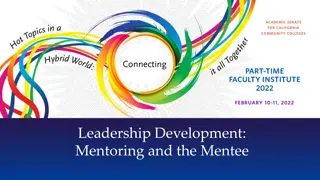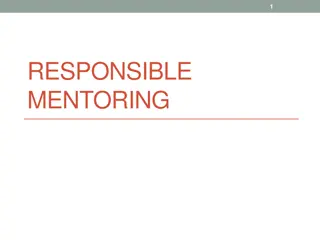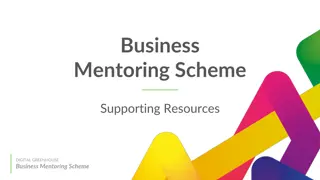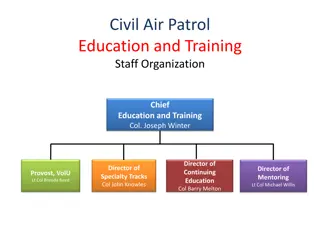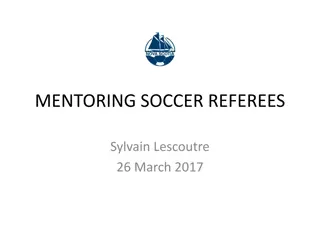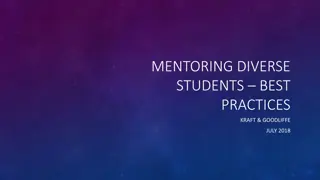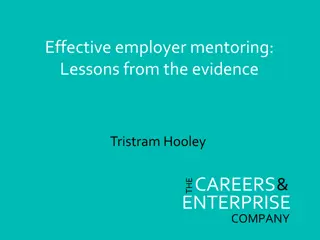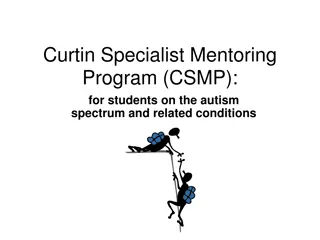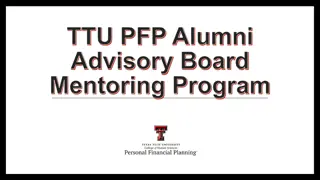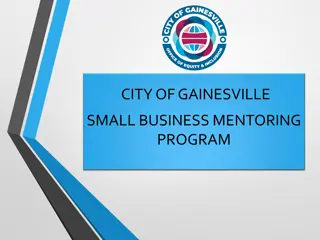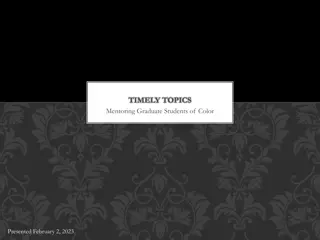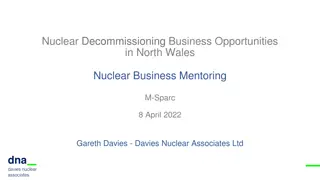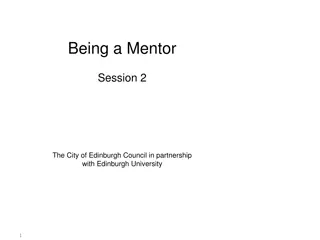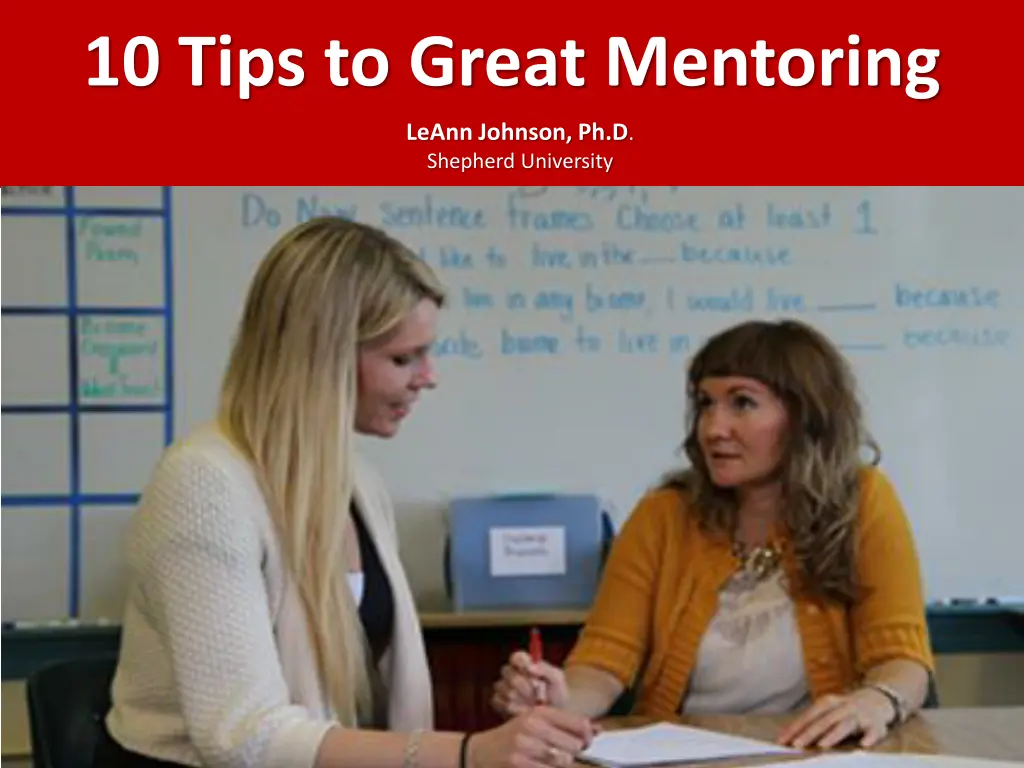
Effective Mentoring Tips for Success
Discover expert tips on how to excel in mentoring relationships, from making time for regular meetings to encouraging reflection and setting SMART goals. Learn how to establish rapport, provide instructional support, offer feedback, and model personal learning while being flexible and responsive to your mentee's needs.
Uploaded on | 1 Views
Download Presentation

Please find below an Image/Link to download the presentation.
The content on the website is provided AS IS for your information and personal use only. It may not be sold, licensed, or shared on other websites without obtaining consent from the author. If you encounter any issues during the download, it is possible that the publisher has removed the file from their server.
You are allowed to download the files provided on this website for personal or commercial use, subject to the condition that they are used lawfully. All files are the property of their respective owners.
The content on the website is provided AS IS for your information and personal use only. It may not be sold, licensed, or shared on other websites without obtaining consent from the author.
E N D
Presentation Transcript
10 Tips to Great Mentoring LeAnn Johnson, Ph.D. Shepherd University
1. Make Time Build a regular meeting time with your mentee into your schedule. Don t let other things bump it. Stay focused.
2. Rapport Think back to your own experiences as a student or new teacher. Who was there for you? What characteristics/behaviors did they exhibit that made you feel supported? What if the mentee is just plain difficult?
3. Instructional Support Initiate and maintain continual collegial dialogue based on shared experience Begin at the mentee s skill level zone of proximal development Create shared experiences o Team planning o Team teaching o Observing mentee o Being Observed (model) o Video Tape
4. Encourage Reflection It is not what you say. It is the questions you ask that are important. Vikrant Parsai While holding a writing conference, your mentee has difficulty maintaining awareness of the rest of the class. What questions might you use to encourage reflection and problem solving in this area?
5. Feedback Confirm appropriate outcomes of mentee reflection mirroring specific points for reinforcement. I agree that xxxx. Extend mentee conclusions with specific questions that push thinking to the next level. Given what you think, what would happen if you xxx? Reserve telling for those areas where the mentee does not have the knowledge needed to move to the next level. Record main points in writing.
6. Support Goal Setting Specific Measurable Rewarding Attainable Timebound Focus Prioritize Make them SMART Remember, Rome wasn t built in a day.
7. Model Personal Learning Be transparent about your own search for better answers and more effective ways to meet student needs. No one appreciates a know-it-all Anonymous
8. Be Flexible/Responsive Just as you adjust your questioning of students to meet their learning needs, adjust your communication and support according to mentees needs. Mentoring is an art form, not a recipe. There is no single approach to providing the best type of support
9. Face Hard Conversations Don t wait! Plan the main points of the conversation Leave unproductive emotions at the door Be objective End with a written statement of the problem and what is required to fix it.
10. Motivate Mentoring is a brain to pick, an ear to listen, and a push in the right direction. John C. Cosby
10 Tips to Great Mentoring LeAnn A. Johnson, Ph.D. Shepherd University 1.Make time 2.Develop Rapport 3.Give Instructional Support 4. Encourage Reflection 5. Provide Feedback 6. Support Goal Setting 7. Model Personal Learning 8. Be Flexible/Responsive 9. Face Hard Conversations 10. Motivate


